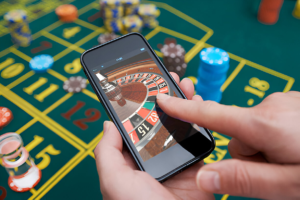Gambling can be a thrilling escape, an occasional break from routine, and sometimes even a hobby we share with friends. But for many, the line between casual gambling and problem gambling can become blurry over time. Recognizing when gambling stops being fun and starts feeling more like an obligation can be difficult, but identifying problem behaviors early can help maintain balance and well-being.
If you’re unsure about your gambling habits or concerned about someone else, this guide offers a straightforward, compassionate look at how to spot and address problem gambling behaviors.

1. Recognizing the Red Flags
When does gambling turn from a game into something more concerning? While everyone’s experience is different, some common signs of problem gambling include:
- Feeling compelled to gamble to escape stress or negative emotions. Gambling can be an easy distraction, but if it becomes a go-to coping mechanism, it can lead to dependence.
- Increasing bets to try and recover losses. Known as “chasing losses,” this behavior can quickly spiral, leading to further financial stress.
- Borrowing money or using savings to fund gambling. When gambling cuts into essentials like rent, groceries, or savings, it can signal a need to take a step back.
- Neglecting relationships and responsibilities. If gambling starts to affect relationships, work, or personal health, it may be time to reconsider its role in your life.
2. Reflecting on Your Habits and Patterns
Sometimes it’s hard to see our own habits objectively. Try asking yourself some key questions: When you gamble, do you feel in control? Are you betting more than planned? Do you feel anxious when not gambling? These are tough questions, but they can be powerful indicators of whether your gambling habits align with your intentions.
If answering these questions feels challenging, consider keeping a journal of your gambling activities. This can include how much you bet, how long you play, and how you feel afterward. Over time, patterns may emerge that can help you see if gambling is affecting your life in ways you hadn’t realized.
3. Finding Healthy Alternatives
Sometimes gambling fills a need—whether it’s a craving for excitement, an escape from routine, or a way to de-stress. But there are countless other fulfilling activities that can offer the same benefits without the risks. Here are a few examples:
- Physical activities like running, cycling, or joining a local sports league can provide a thrill while boosting physical and mental health.
- Creative outlets like painting, writing, or crafting offer a satisfying way to channel energy and escape routine.
- Social hobbies like volunteering, group classes, or book clubs can help foster connections without the financial risks of gambling.
The idea isn’t to replace gambling altogether but to introduce other forms of enjoyment that add balance and variety to your life.
4. Building a Support System
One of the most empowering steps is to surround yourself with people who support you. Talking with trusted friends or family members about your gambling habits can create a sense of accountability and understanding. You may even find that others have been through similar experiences and have insights or encouragement to share.
If you feel comfortable, consider joining a support group or speaking with a counselor who specializes in gambling issues. Professionals can offer guidance and tools tailored to your specific challenges. Remember, seeking help is a positive, brave step, not a sign of weakness.
5. Setting Boundaries for a Healthier Experience
If you’re aiming to maintain a balanced relationship with gambling, boundaries are essential. Try setting time limits and a strict budget for yourself before each gambling session. By sticking to these limits, you can enjoy the activity without putting your well-being at risk.
If you find yourself going over these limits, don’t be hard on yourself. Habits take time to change, and each day is a new opportunity to approach gambling more mindfully.
Finding Joy Beyond Gambling
Problem gambling doesn’t have to be a permanent label. By reflecting on your habits, finding healthy alternatives, building a support system, and setting boundaries, you can work towards a balanced relationship with gambling. The goal is to keep gambling fun and free of stress, so it remains a small part of a life that’s rich with other joys and opportunities.


